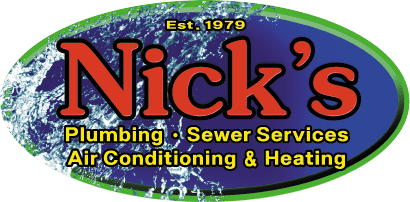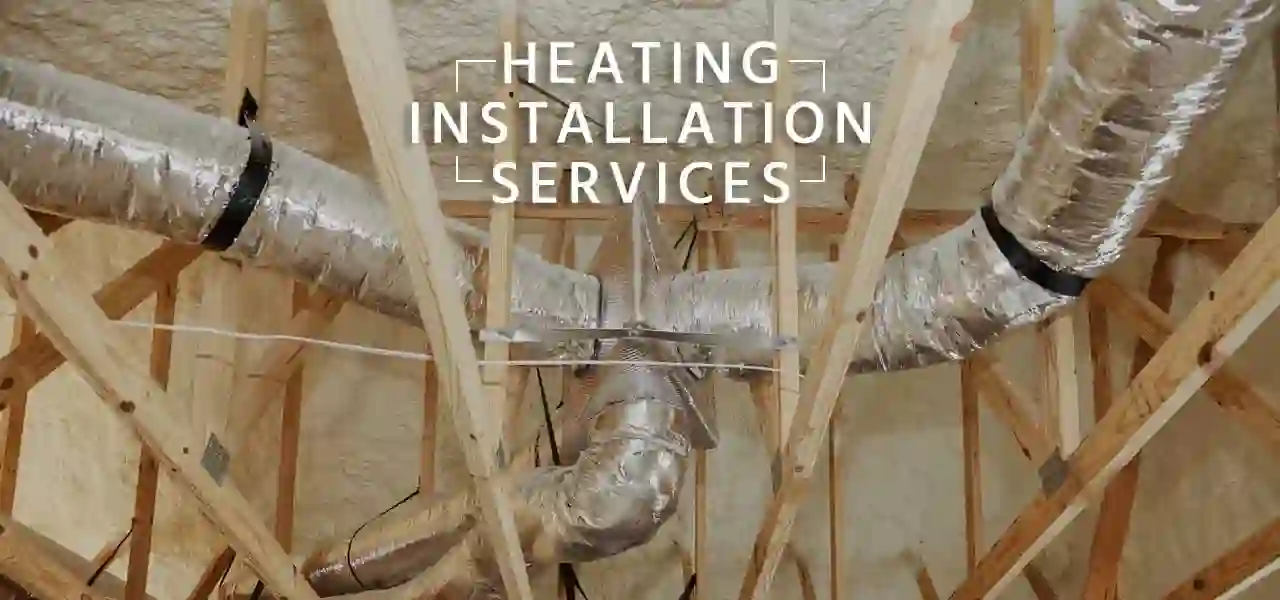Heating & Furnace Installation Services in Houston
In Houston’s subtropical climate, it’s easy to overlook potential issues with your heating system. With mild winters, furnaces often take a backseat in home maintenance, leading to undetected wear and inefficiency. However, neglecting your heating system can result in unexpected breakdowns, reduced energy efficiency, and higher utility bills when colder weather arrives.
Nick’s Air Conditioning is Houston’s top choice when replacing or installing new heating equipment. With decades of experience and a reputation for quality service, our team specializes in helping Houston homeowners select and install energy-efficient heating systems tailored to their needs. From consultation to installation, we ensure the process is seamless so you can enjoy reliable warmth and comfort throughout the winter.
Signs it Might Be Time for a New Heating System
The average lifespan of a new heating system is approximately ten to fifteen years, assuming that proper HVAC maintenance and repairs are performed during that time. Unfortunately, even under optimum circumstances, HVAC systems can break down, and furnaces always seem to fail on the coldest days. On the upside, our air conditioning and heating systems will likely send us a warning before a catastrophic failure.
As the colder months approach, it is crucial to recognize when your heating system may struggle to meet demand. Ignoring the signs of trouble can lead to unexpected breakdowns or costly repairs. If you notice any of the following issues, it may be time to consult a professional for heating replacement and installation services:
Frequent Repairs
Multiple breakdowns in a short period indicate that critical components may be on their way to failing, and replacing the system is often more cost-effective than ongoing repairs.
Unusual Noises
Banging, rattling, or whistling sounds often suggest mechanical failure or loose parts, requiring inspection and possible replacement. Squeaking, squealing, and screeching usually indicate a worn-out bearing in a component like a fan or a pulley. Banging and rattling sounds in your heating system often indicate problems within your ductwork.
Inconsistent Heating
Uneven temperatures or cold spots in your home can point to aging ductwork or a failing system, which might need upgrading. Of course, after checking that the vents in the affected rooms are open and warm air is coming out of them, you’ll need to investigate this issue further. Uneven heating, especially if it is a new issue you’ve never experienced, can signify that your HVAC is nearing the end of its useful life.
Rising Energy Bills
Increased energy use in winter indicates something is amiss in your HVAC system. Unmaintained heat exchangers develop a layer of dirt and dust that creates a barrier between the appliance and the air it needs to heat, causing the furnace to run longer and work harder to maintain comfort. A spike in energy costs without increased usage signals that your system is losing efficiency and may need replacement with a more energy-efficient model.
Ductwork Leaks
Will your current ductwork perform at the level you need when you install your new furnace? Nick’s Air Conditioning will inspect your current ductwork to determine if it will be compatible with your new furnace. Anyone currently shopping for a new heating system should prepare themselves for the need to make needed ductwork improvements.
Old Age
Systems over 10-15 years old are more prone to breakdowns and inefficiencies, making a replacement a wise investment. Professional remedies often include a complete system evaluation to determine whether repairs are sufficient or if a new energy-efficient heating system is the best solution for reliable winter comfort.
What Can I Expect from a Heating System Installation by Nick’s Air Conditioning?
Nick’s Air Conditioning specializes in professional heating systems and furnace installations tailored to meet the unique needs of Houston homeowners. Whether you are replacing an outdated system or installing a brand-new one, our experienced technicians ensure a seamless process from start to finish. We offer various installation services, focusing on energy efficiency, performance, and reliability to keep your home warm and comfortable all winter.
Heating System and Furnace Installation from Nick’s
Gas Furnaces
Efficient and reliable, these systems are perfect for homeowners seeking cost-effective heating with rapid warmth. Gas furnaces provide powerful, consistent heat even during the coldest months, making them ideal for larger homes or those with high heating demands. With modern advancements in energy efficiency, today’s gas furnaces are designed to save you money on utility bills while reducing environmental impact.
Electric Furnaces
A great option for homes without access to natural gas, offering consistent and clean energy performance. These systems are easier to install and maintain than gas furnaces, making them a practical choice for many homeowners. Electric furnaces are also safer, as they eliminate the risk of gas leaks and carbon monoxide, and their compatibility with renewable energy sources makes them an eco-friendly option for heating your home.
Heat Pumps
Heat pumps are versatile systems that provide heating and cooling, ideal for Houston’s mild winters and year-round comfort. By transferring heat rather than generating it, heat pumps are highly energy-efficient, making them a cost-effective choice for maintaining a comfortable home. They work seamlessly in moderate climates, offering reliable warmth during cooler months and efficient cooling during summer. With advanced features like variable-speed technology, heat pumps can adapt to your home’s specific needs, enhancing comfort while reducing energy costs.
Ductless Mini-Split Systems
Ductless mini-splits are energy-efficient solutions for individual rooms or smaller spaces, giving you flexible climate control. They allow you to set different temperatures in separate areas of your home, making them ideal for zoning and personal comfort. With no required ductwork, they are easier to install and minimize energy loss than traditional central heating and cooling systems. Their sleek design and quiet operation make them a discreet and convenient choice for enhancing comfort in any room.
High-Efficiency Upgrades
Modern systems with advanced technology to reduce energy consumption and lower utility bills. High-efficiency HVAC systems are designed to operate at peak performance with features like variable-speed motors, smart thermostats, and enhanced insulation to optimize heating efficiency. High-efficiency upgrades save you money and reduce your carbon footprint, making them an environmentally friendly choice.
Nick’s prioritizes your comfort and satisfaction with every installation, ensuring your new system is appropriately sized, expertly installed, and built to last.
How Do I Choose the Right Heating System or Furnace for My Home?
Selecting the right heating system or furnace will depend on your home’s size, energy needs, and budget. For reliable and efficient solutions, Nick’s Air Conditioning exclusively installs the full array of Trane furnaces and air conditioners, known for their durability, high performance, and energy efficiency. Whether you need a powerful gas furnace to manage Houston’s occasional cold snaps or a versatile heat pump that can provide heating and cooling, Trane’s lineup offers advanced systems tailored to your specific requirements.
Sign Up for Nick’s VIP Smart Monitoring & Maintenance Program for Your New Heating System!
Nick’s Smart VIP Monitoring & Maintenance Program is designed to keep your new HVAC equipment running efficiently year-round while providing added peace of mind. With two professional HVAC maintenance visits per year—one in the spring for your cooling system and one in the fall for your heating system—our technicians ensure your system stays in top condition.
Regular tune-ups include thorough cleaning, inspections, and adjustments to maximize efficiency, reduce energy costs, and extend the lifespan of your equipment. Additionally, the program includes one annual plumbing inspection with a high-definition camera, helping to catch potential issues early and prevent costly repairs.
By choosing the Smart VIP Program, you’re investing in the long-term performance and reliability of your home’s essential systems.
Why Pick Nick’s for My Heating System or Furnace Installation?
Nick’s Air Conditioning provides expert HVAC installation services tailored to Houston homeowners’ unique needs. Whether you’re replacing an outdated system or installing a new one, our team specializes in energy-efficient solutions from trusted brands like Trane. From central heating and cooling systems to ductless mini-splits, we ensure every installation is performed with precision and care, keeping your home comfortable and energy bills low. With our commitment to quality, you can trust Nick’s to deliver reliable, long-lasting results.
Call Nick’s Air Conditioning today for all your HVAC needs!




